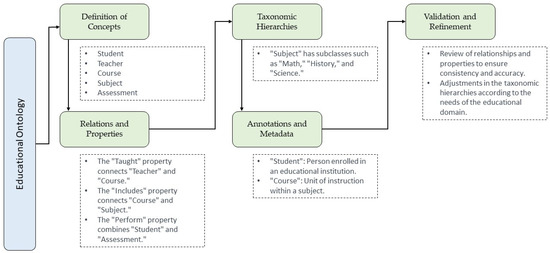Bioinformatics Tutor - Questions
Bioinformatics Tutor - Questions
Blog Article
Bioinformatics Tutor Can Be Fun For Everyone
Table of ContentsBioinformatics Tutor for DummiesThe smart Trick of Bioinformatics Tutor That Nobody is DiscussingBioinformatics Tutor Things To Know Before You BuyGet This Report about Bioinformatics TutorNot known Details About Bioinformatics Tutor
Of the total amount participants associated with the training, 80% were trainees from public higher education and learning organizations, while the continuing to be 20% originated from personal establishments. To qualify for a certification of engagement, pupils were required to attend a minimum of 90% of the total training hours. As a result of this demand, a remarkable 95% of the participants successfully obtained their certificates, having not only met the minimum presence standards yet also finished all appointed tasks throughout the training.
Throughout the elevation of the COVID-19 pandemic, especially in between June and August 2020, the project group was charged with organizing specialized training in bioinformatics. This training was specifically targeted at pupils from the study group Center for Research study in Applied Computing at the Federal University of Pará (UFRA) The adjustment to remote understanding systems because of the pandemic created an opportunity to explore new training techniques and electronic devices that improved both reach and effectiveness.
This training course was designed to offer an accessible yet extensive introduction of Artificial Intelligence methods, particularly as applied in bioinformatics (Bioinformatics Tutor). This online style allowed involvement from trainees throughout Brazil, numerous of whom may not have had the chance to participate in in-person sessions.
Rumored Buzz on Bioinformatics Tutor
A significant function of this course was its emphasis on hands-on learning. Roughly 50% of the overall training hours were committed to practical tasks where students constructed smart designs and applications in a variety of clinical domains, including genes, molecular biology, and ecological data evaluation. Extensively utilized structures and devices such as Spyder, Google Colab, Jupyter Notebooks, and Orange were integrated right into the coursework. These platforms made it possible for pupils to involve in real-time data control, version training, and algorithm testing.
Sixty of them were affiliated with different greater education institutions in the state of Pará, while the staying twenty came from institutions found in five other Brazilian states. By introducing Artificial Intelligence in a sensible and pertinent context, the initiative offered to link the void in between concept and real-world application, providing students with a solid structure for future study or employment in the area.
The training campaign created component of a more comprehensive scholastic outreach initiative referred to as the Bioinformatics on the Roadway job. This project has, for many years, introduced dozens of pupils to the globe of bioinformatics and computational biology. The events held under this umbrella effort have happened throughout numerous areas and years, as summarized in Table 1 (List of occasions, places, years, and complete varieties of trainees and instructors)
Numerous of these groups, at first brought with each other by their involvement in training occasions, have considering that gone on to produce independent scientific research study in cooperation with local academic organizations. The training not just fostered clinical thinking within the context of bioinformatics yet also stimulated joint connections that expanded beyond the training atmosphere.
The Main Principles Of Bioinformatics Tutor
The task itself was conceptualized and organized by megabytes and RR, that oversaw the planning and implementation of each step. Lectures were provided by a multidisciplinary group containing megabytes, FA, EF, KP, JS, DM, SN, LP, LG, A/C, rr, and ih. The same team, omitting IH and RR, likewise acted as tutors for the useful training modules. Funding for the task was supplied via the give 88887.200562/ 2018-00 from CAPES. The writers prolong their gratitude to everybody who added to the awareness of this task, try this out whether straight or indirectly, considering that its creation.
The Federal College of Pará's Office of Study (PROPESP/UFPA) additionally supplied financial backing, specifically for the manufacturing of the last manuscript. The authors declare no business or monetary conflicts of passion that might have affected the research study. All point of views and interpretations shared in this short article are solely those of the writers and do not necessarily mirror those of their particular organizations, the publisher, editors, or customers involved in the magazine process.

Bioinformatics Tutor Things To Know Before You Get This
From an instructional perspective, the training method utilized in the training was intentionally interactive. Classes were carried out in a fashion that urged pupil participation and conversation, surpassing memorizing memorization to check out just how ideas are developed, applied in every day life, and examined in academic settings. The training approach concentrated on nurturing both strong and struggling trainees, offering customized assistance, and structure self-confidence via sustained mentorship and persistence.

Each group, including around 36 participants, was sustained by three coaches-- the majority of whom were postdoctoral scientists with specialized expertise. These mentors not only helped create the group jobs however also facilitated their execution, making certain that each study question was both relevant and appropriately challenging. The goal was to supply a biologically reasonable context that participants might check out through open-ended purposes and access to curated datasets.
For additional insights into the approach and results of this project-based browse around here understanding strategy, visitors are routed to S1 Text, that includes thorough summaries of the pedagogical structure, analysis approaches, and job motifs used in the training sessions.
Getting The Bioinformatics Tutor To Work
Of the total individuals involved in the training, 80% were pupils from public higher education and learning organizations, while the continuing to be 20% came from personal establishments. To qualify for a certification of involvement, students were called for to attend at the very least 90% of the overall training hours. Especially, beyond the trainees who enrolled in the training sessions, seven experienced instructors got involved in delivering the programs, while 3 devoted research study professors collaborated the total training process. About 50% of the overall training hours were dedicated to practical activities where pupils developed intelligent versions and applications in a range of scientific domains, consisting of genetics, molecular biology, and environmental data evaluation. The training not just promoted clinical reasoning within the context of bioinformatics but also stimulated joint relationships that prolonged past the training atmosphere.
Report this page